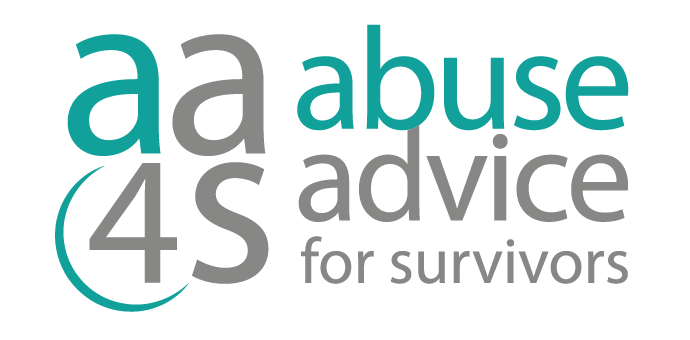
When I am invited to give an interview to the media, it usually tells me that there is some relevance to child abuse, which often results in another blog. I have already done a blog article on Huw Edwards when the story came out last July on the subject of anonymity. This time both Lisa Nandy, the newly appointed Secretary of State for Culture Media and Sport, and various newspapers were arguing that the BBC had been wrong to pay Huw Edwards when he had been arrested for serious sexual offences. The question is did the BBC have legal grounds to do so? And what is the moral case?
Before I launch into this article, which is written on the narrow point of law appertaining to Huw Edwards contract, I must emphasize that I wholeheartedly condemn the crime in question. Possession of serious child abuse images exposes the victims to repeated abuse when the images are made and distributed online. According to experts, such crimes are often acts of fantasy preparatory to the commission of more serious offences.
According to the BBC itself:-
Huw Edwards has been asked by the BBC to hand back more than £200,000 salary he earned after being arrested in November on child abuse image charges.
The ex-presenter “behaved in bad faith” in continuing to take his salary despite knowing what he had done, said BBC Chair Samir Shah in a letter to staff.
Edwards, formerly the BBC’s most high-profile newsreader, continued to earn his salary for five months after he was arrested on three counts of making indecent images of children.
He was suspended in July last year and arrested four months later. He did not resign from the BBC until April.
We do live in a topsy turvy world with a media hungry public desperate to pass judgment and comment on any scandal which hits the newstands. The BBC are usually damned if they do and damned if they don’t. Last July the BBC did their best to avoid being judged by not releasing the name of the celebrity who was being investigated for serious sexual offences. It was his wife that named Huw Edwards because, inevitably, there were wrongful accusations of innocent men, such is the power of social media.
At the time they were preserving the rights of privacy of the individual, and avoiding being criticised for judging a man to be guilty before being tried by a Court of Law, or at least charged with an offence. This attitude was in reaction to the likes of Cliff Richard and Harvey Proctor who had been successful in defamation type cases against the BBC on the basis that they were named wrongfully when they were innocent.
Some 13 months later, Edwards finally resigns after pleading guilty at Court even though he had been arrested for serious sexual offences back in November last year. The clamour then is for him to pay back a substantial sum of money to his employers, which he had earned, “knowing that he was guilty”, upon his being arrested.
What is the Legal Case?
- The fundamental principle of English Law is that one is innocent until proven guilty. So if a celebrity’s identity is leaked to the press then he or she finds it difficult, if not impossible to have a fair trial because he has already been tried by the media.
- The Police have the power to arrest someone when “they have reasonable grounds to believe that an offence may have been committed,” whereas once charges are brought, the police must believe that at trial they can prove the offence “beyond reasonable doubt”. Thus, one can see why charging someone rather than arresting them is the trigger for action.
- If an employer dismisses an employee before they have been tried by a court of law, then they will usually be found liable for unfair dismissal, unless they have proof on the balance of probabilities that the offence has been committed, for example, at work.
- The misdeeds of Huw Edwards arose outside of his employment as a newsreader as far as we know, so if he had been dismissed back in July, the cost to the BBC would probably be far more than £200,000
- If an employer dismisses someone before a criminal trial, then it can interfere with the criminal case
- Contractually, an employer is bound to pay an employee a wage under the terms of his contract of employment. If they fail to pay that salary they are in breach of contract such that the employee is entitled to regard themselves as constructively dismissed. Again the BBC bill would be much more than £200K
- If the BBC knew that Edwards admitted the offences for which he had been charged, then they may have grounds to terminate his contract, but they have been at pains to say that the police would tell them nothing, as is the norm.
- As Edwards is reported to have severe mental health issues, dismissal in such circumstances, without a thorough appraisal of the medical situation, could easily be deemed unfair.
- I am obviously not privy to any legal advice given to the BBC but I am sure it would have been cautious, hence why the BBC has “asked Huw Edwards for their money back” rather than demanded it in breach of contract.
What Is The Moral Case?
This I will find more difficult because I am a lawyer not a moralist (some might put it differently?)
- Edwards out of fairness has played the game and taken salary when he knew he would be pleading guilty because he had been banged to rights when he was arrested by the police.
- The BBC are paid by the license holders, to whom they owe a duty, and have to be overly careful about how they use public money. £200,000 is a large sum of money. The public expect the BBC to ensure the salary paid to Edwards is returned.
- Edwards should have been honest when he was caught with indecent images of children, and resigned as soon as he was arrested rather then receive his salary under false pretenses knowing that he would have to plead guilty when the case came to court.
- It is known that Edwards has been hospitalised for severe mental problems such as anxiety and depression. His wife has now said that the recent developements have made him, understandably, a lot worse. So would it be morally fair to dismiss him when he is ill?
- The BBC are being urged to review their rules on suspension of staff when facing charges before the court or arrest particularly where the accused is in the public eye.
- Is this one rule for publicly funded celebrities, and another rule for everyone else?
- If Edwards is in prison, and forced to repay over £200,000, then his dependent family might be the ones who suffer financially, whilst he is accommodated out of the public purse.
- Is this a story arising from Lisa Nandy showing that she is a strong departmental leader by tackling Auntie BBC weeks into her post?
Conclusion
Having done my best to argue in a balanced way, I find myself coming down very heavily on the legal case side. I can see the attraction of the moral argument. I fear that Huw Edwards will be under a lot of pressure to do the decent thing and repay his salary. On the other hand he is surely at grave danger of a prison sentence, and no income for the forseeable future, so he may need every penny that he can save. Whilst I am a child abuse rather than an employment lawyer, I read the online opinions to be weighted against dismissal before guilty plea, and there being no grounds to claw back money paid by way of salary unless there are specific grounds to do so in his contract of employment.


